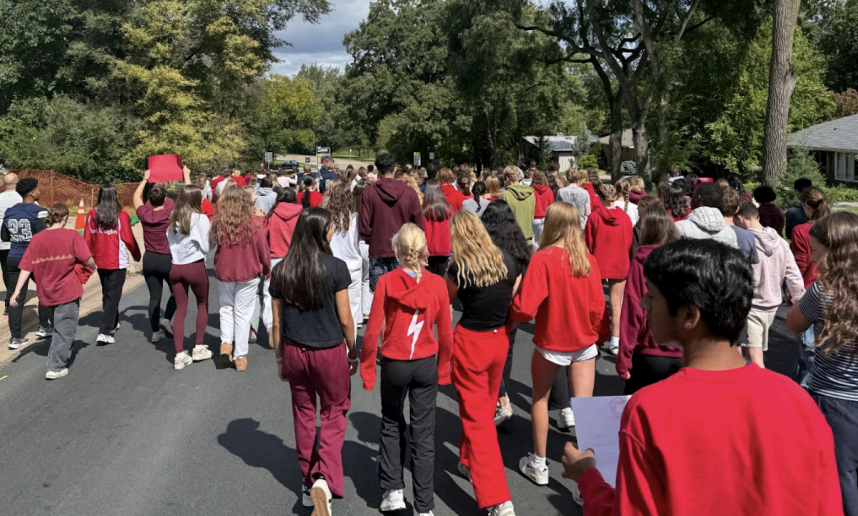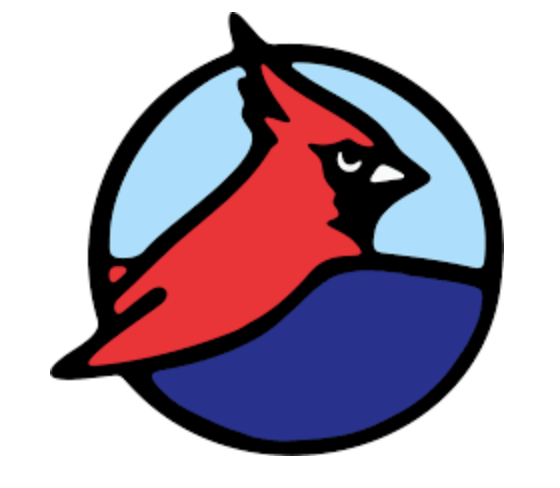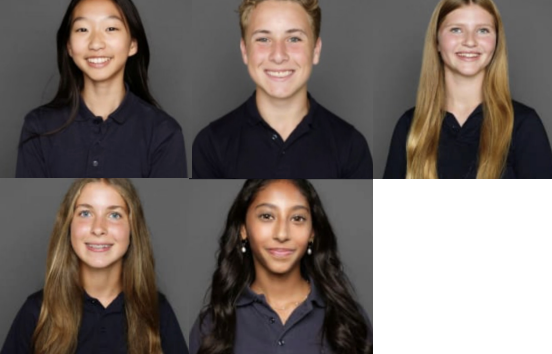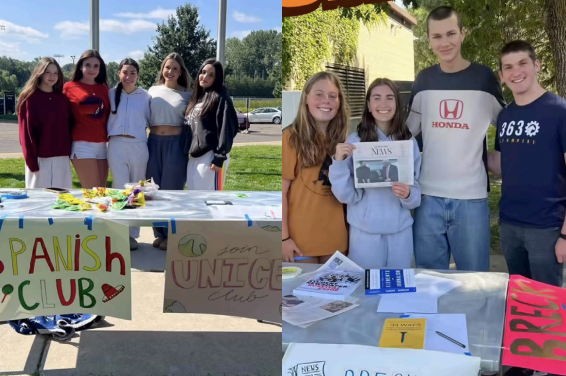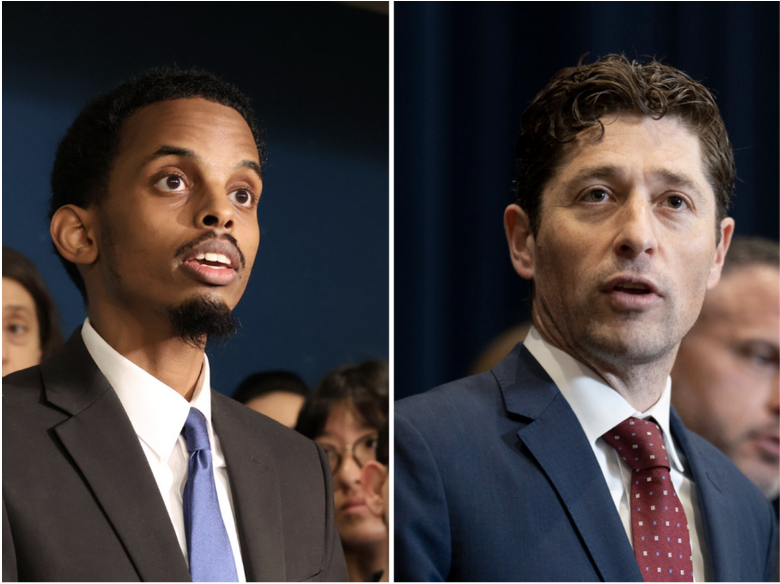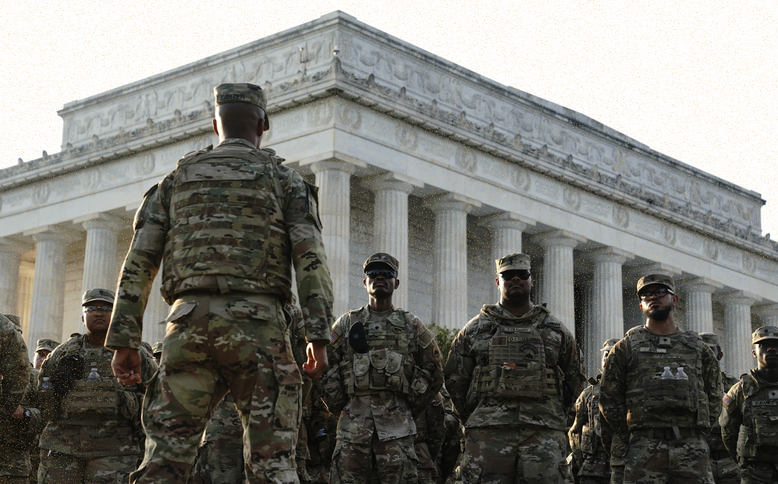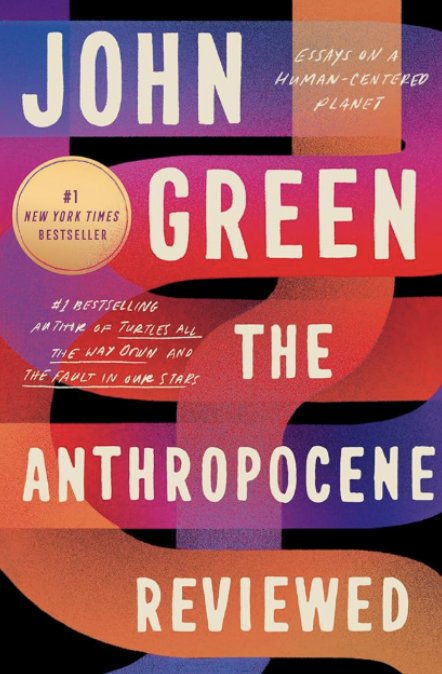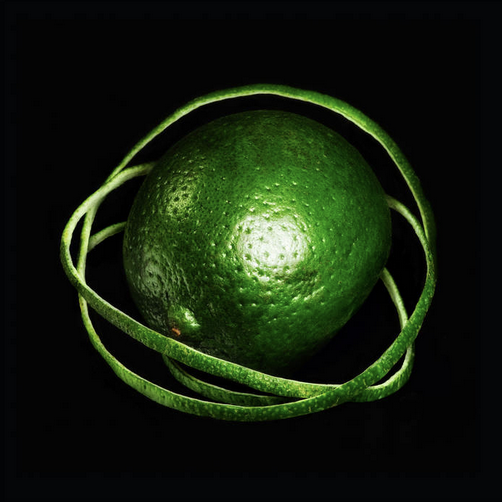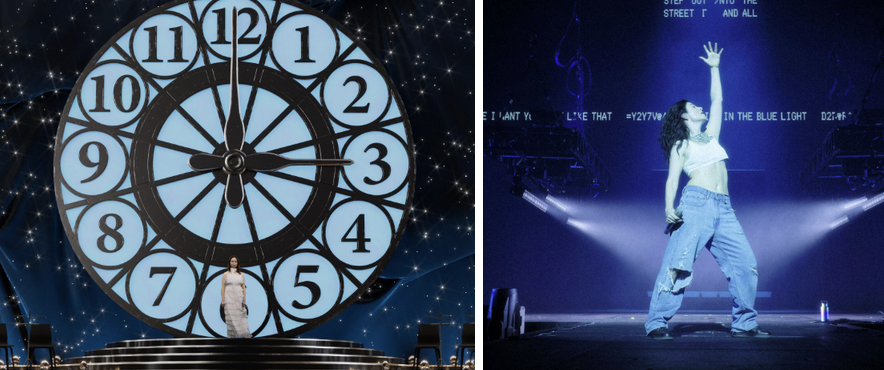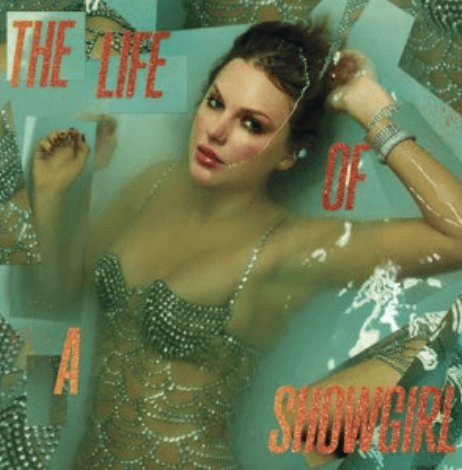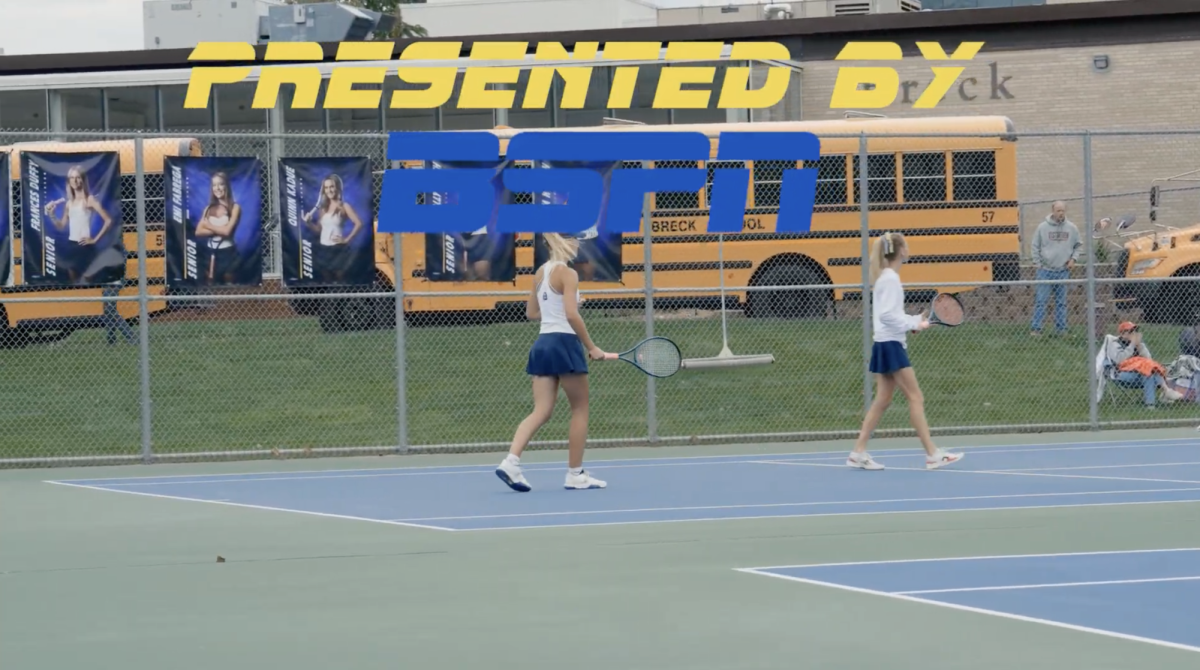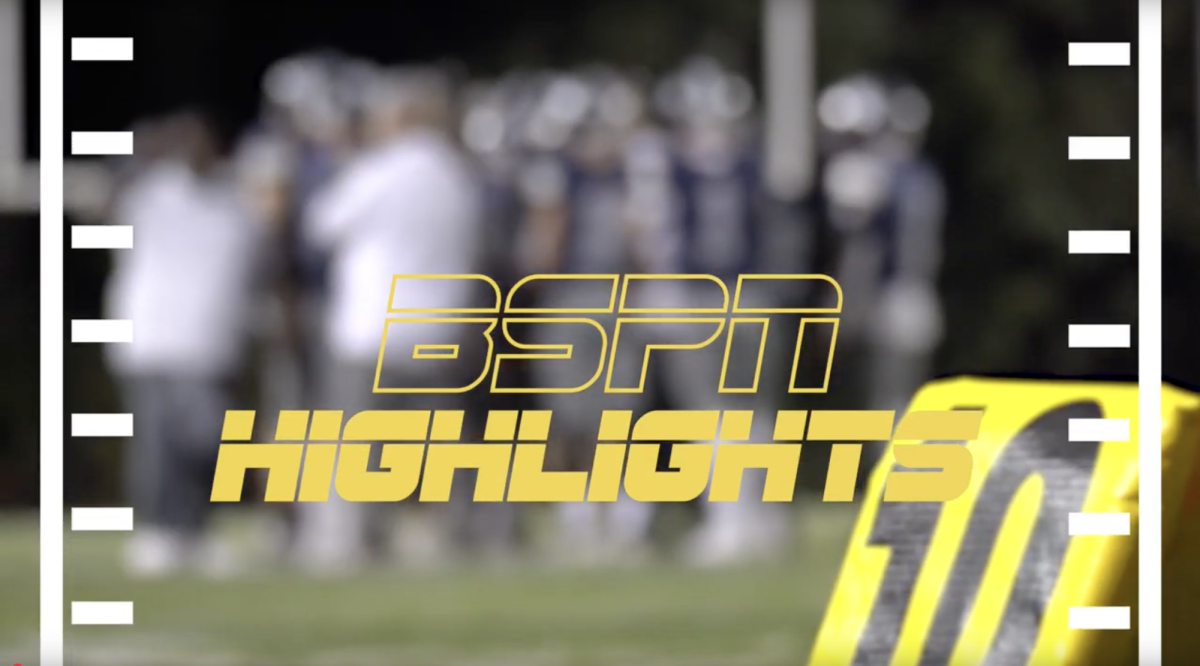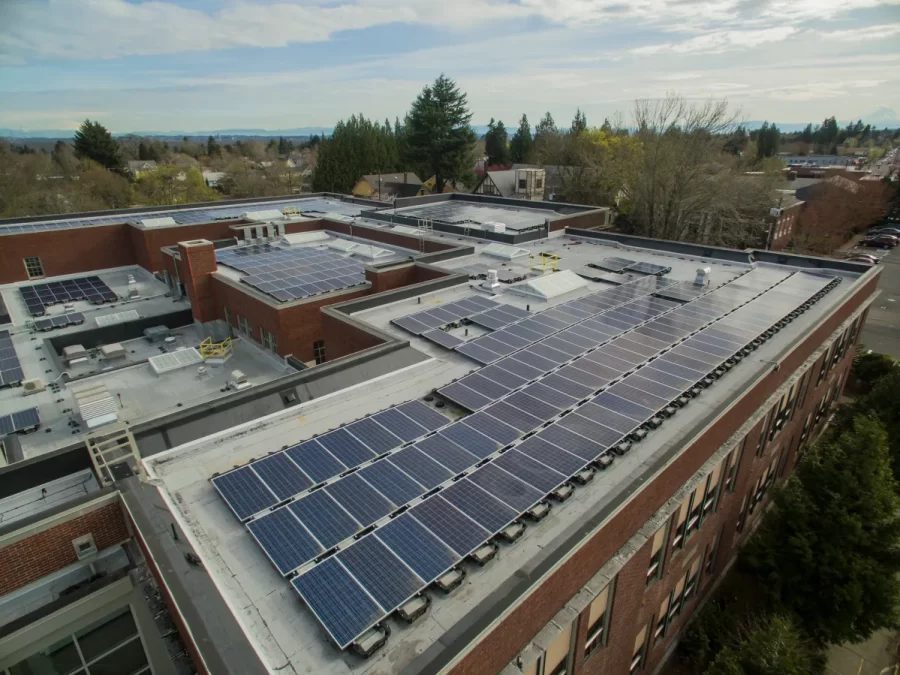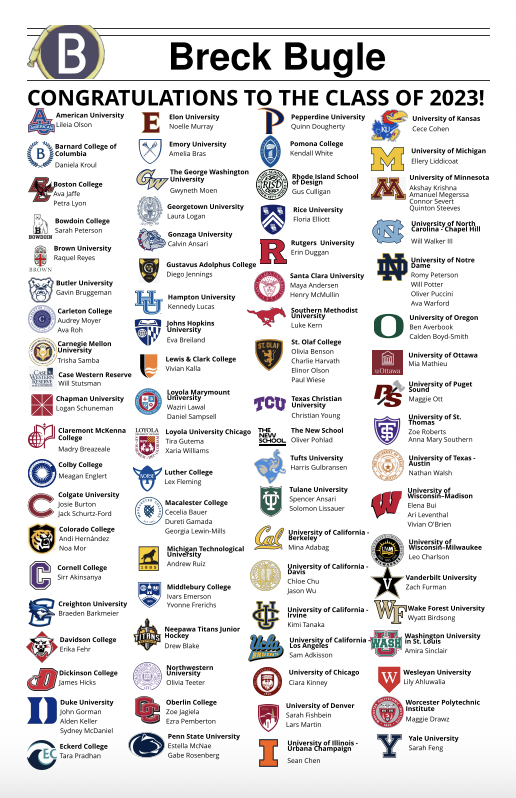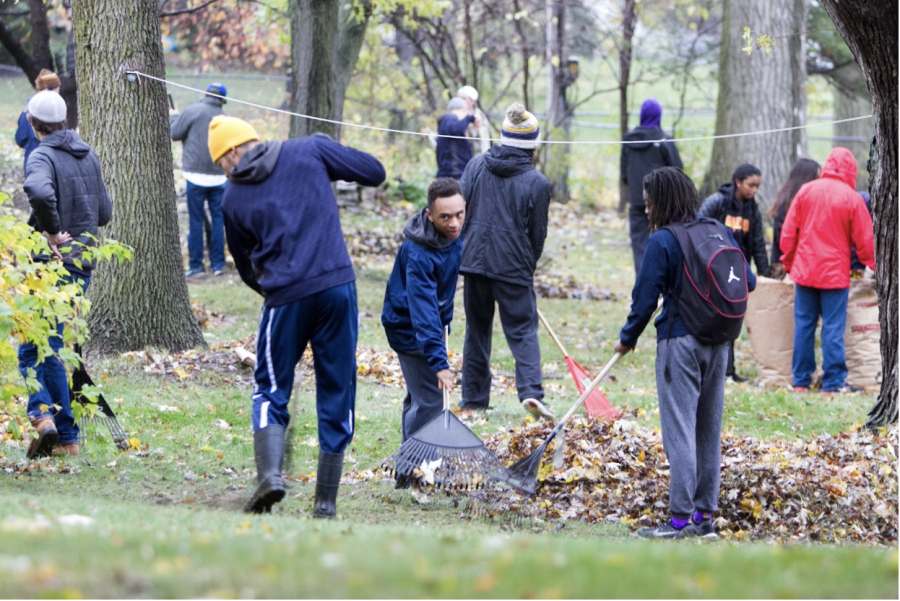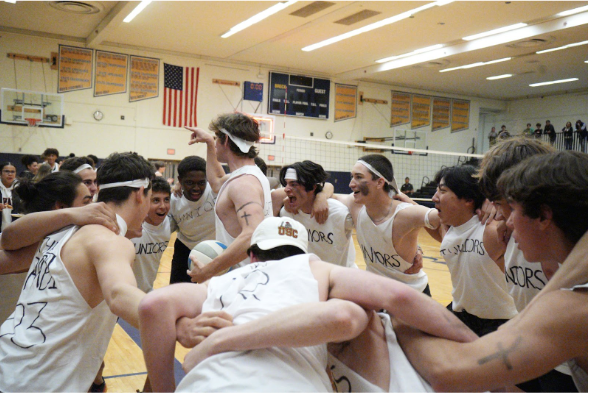Upper School Students from Breck’s Advanced Science Research class—led by Dr. Kati Kragtorp—and the Science Research club—led by Ms. Sarah Sobas and Dr. Kati Kragtorp—competed in the Twin Cities Regional Science Fairs (TCRSF) on February 28. These students brainstormed, designed, and executed their own original research or engineering project in the months leading up to the fair. Breck’s research program aligns with its mission to instill intellectual curiosity into each of its students by allowing them to pursue a project they are interested in while also having the support of teachers, mentors, and peers.
Projects at this fair were spread across all different areas of science. Breck students had projects ranging from robots monitoring coral reefs to the potential antimicrobial effects of turmeric and the effectiveness of caffeine in increasing attention. They competed with more than 500 different students from schools across the Twin Cities Metro Area. At the fair, students present their research in a poster format to volunteers with a background in science. There is also a public viewing session where parents, students, and other members of the public can look at the work of these young scientists.
At this fair, students have the opportunity to advance to both the Minnesota State Science and Engineering fair (SSEF) and the International Science and Engineering fair (ISEF), as well as receive a variety of special awards. Nine high school projects successfully advanced to SSEF (top 20%), where they’ll get a chance to compete for more awards and earn a spot in ISEF. Additionally, six projects won special awards: Jack S. ‘26 and Benny M. ‘26, Selena Q. ‘26 and Abby E. ‘25, Shivam S. ‘28, Olivia L. ‘26, Yosan A. ‘25, and Juniper “June” S. ‘25. These special awards are given by companies and organizations interested in supporting young scientists.
June, recipient of the Inspiring Excellence Award, noted how the fair allows for amazing opportunities to make new connections and relationships with students in different schools with different interests. She researched the properties of a new protein, SamA1, that may have the potential to be used in new drugs. When asked what the most interesting thing in her project was, June responded, “I found, interestingly enough, that even the highest caliber AI models like AlphaFold3 couldn’t accurately predict SamA1, suggesting that we have a really unique protein on our hands.” Yosan, recipient of the 3M Aerospace and Defense Vertical award, mentioned how science research helped her build new skills like soldering, describing her experience as “#lit and #awesome.” Her project involved creating a more accessible detector for dangerous levels of natural gas, aiding people with impaired senses who may not be able to work with a traditional gas detector. When asked how she will spend the $100 she received for the award, Yosan responded that she will spend it on Fortnite V-Bucks.
In addition to competing at the local science fair, students from Advanced Science Research wrote a research paper during the first semester of the school year to submit to the North Central Junior Science and Humanities Symposium (JSHS) at Augustana University—sponsored by the Department of Defense. All papers were accepted to this prestigious competition which only accepts the top 56 papers from the Dakotas and Minnesota. The papers then competed in poster or oral presentations in front of judges.
Although many of Breck projects were researched by groups, the competition only allows one student to present their work on behalf of their team. Selena Qiao ‘26, who researched the effects of a chemical in bug spray on grass with Abby Endres ‘25, won 2nd prize. Jack Sigmond ‘26, who designed a robot to determine the health of basil plants in a greenhouse with Benny Marmor ‘26, won 3rd prize. Both have been invited to present their research in April at the national competition in Chantilly, Virginia; Selena will give an oral presentation, and Jack will give a poster presentation. This was the first time in at least 7 years that Breck has sent two qualifiers to the national competition for JSHS.
Selena and Abby’s project focuses on the effects of DEET, a chemical common in bug sprays, on grass. Anecdotal evidence has suggested that DEET kills grass, but thorough scientific testing has not been conducted yet. Last summer, the pair of student researchers investigated the effects of different concentrations of DEET solutions, with and without another common bug spray ingredient—ethyl alcohol. They found that DEET, not ethyl alcohol, kills grass in a dose-dependent manner, both indoors and outdoors, and the grass does not recover afterward. This research opens new questions for plant toxicology—a topic relevant to all nature enthusiasts.
Jack and Benny designed and built a robot to roam a greenhouse and determine the health of its plants. Their robot, aptly named HERB (Health Evaluation Robot for Basil), is designed to roam the rows of the greenhouse by following a line on the ground and take pictures of basil plants. HERB can be found on the third floor, in the alcove right outside Mr. Lampe’s classroom. They collected data to create a computer program to analyze these images for basil health. This research will help pave the way for more automated crop monitoring in a greenhouse setting, reducing the human time and energy required to grow food. When asked about his project, Jack mentioned how ASR helped him pursue his passion for engineering and STEM. He also noted how events like JSHS allow scientists to connect as a community, especially when research can sometimes feel individual.

Breck students have the opportunity to perform independent research from middle school onward. When asked about science research at Breck, Upper School Science Instructor Sarah Sobas said, “Get involved in science research, you won’t regret it.” As faculty advisor for the Upper School’s Science Research Team and instructor for the new Honors Science Research course, Sobas mentioned how science research allows students to take a deep dive into a particular topic, think about the ways science is talked about or reported, and come out better on the other side. Dr. Kati Kragtorp, Advanced Science Research instructor, highlighted how “Science is changing the world every day! It’s what it does.” Both Kragtorp and Sobas encourage Breck students to take advantage of these research opportunities and get excited about science!
At TCRSF, JSHS, and beyond, Breck student researchers have been greatly successful. These researchers have had the opportunity to explore a topic they are passionate about and make exciting contributions in their fields. Advanced Science Research, Honors Science Research, and Science Research Club offer valuable opportunities for students to engage with a topic they are passionate about and come out more excited about the possibilities of science!
